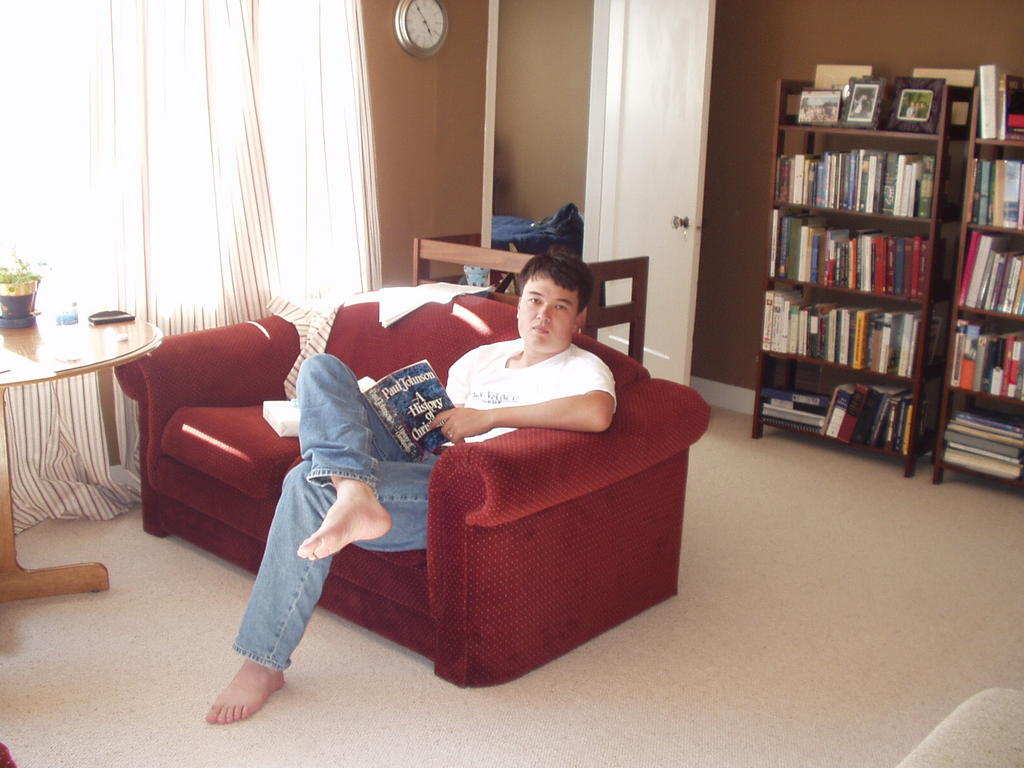"The basic argument in the pages that follow is that Christianity in its classic formulations, especially in its classic formulations, especially the Protestant traditions of Lutheran, Reformed, and Anglican, has very little to say about politics or the ordering of society. This does not mean that Xnity has nothing to say. Clearly, certain notions about men and women being created in the image of God, or about the sinfulness of human nature, or even about the legitimacy of personal property, have implications for politics. But beyond these implications, which may be applied in a variety of ways, Xnity has little to say explicitly about the sort of polity in which Americans have been living for the last 230 years. In fact, when Christians have tried to establish a Christian basis for the planks of political party platforms, or even for broad-based social reforms, they have fundamentally misconstrued their religion."
- D.G. Hart, A Secular Faith, pg. 10-11.
Saturday, December 30, 2006
Reading notes
"Marriage was traditionally seen as a sacrament (by the R.C. church) on the grounds that it was an analogy of the relationship between Christ and the Church. The reformers denied that this was sufficient reason to turn it into a 'sacrament' as such. Calvin mischievously remarked that on these grounds burglary would be a sacrament, since the 'day of the Lord comes like a thief in the night.'"
- Euan Cameron, The European Reformation, pg 167.
- Euan Cameron, The European Reformation, pg 167.
Tuesday, December 26, 2006
Karaoke as Art
Em and I went to the SF Moma this past weekend, and saw two very interesting special exhibitions; being modern art, there was absolutely no relationship between the two.
The first was a video exhibit by Phil Collins (no, not the 80's singer). Walking into this exhibit was at first like walking into the cinema - posters outside, dark crowded room and large screen inside. We as the viewers witnessed a string of Turkish young people karaokeing (sp?) songs by The Smiths. They didn't just sing, they were possessed by song (anyone who has participated in a rousing evening of karaoke knows what I mean). What I found so interesting was that in singing these songs, the twenty-somethings of Istanbul had not only learned Western music and lyrics, but also essentially taken on the "western emotions" associated with these songs - everything from cynicism and malaise to satisfaction and exuberance. Not that these emotions can strictly be categorized in terms of Anglo-Modern culture, but they certainly seem to characterize much of the culture of post-WWII European/American society. Turkey of course is straddling the East-West divide, and so this work by Collins has something meaningful to say about the somewhat bizarre impact globalization is having in the country.
The second exhibit was a display of the work of Anselm Kiefer who has some extremely provocative pieces, using very creative methods to say the least. Just one comment: I thought it interesting that Kiefer in an interview with the curator had said something like "I would prefer to work solely with spiritual material (for my art), but I am forced to create art using tangible material." Unconsciously, he acknowledges the Creator/creature distinction!
The first was a video exhibit by Phil Collins (no, not the 80's singer). Walking into this exhibit was at first like walking into the cinema - posters outside, dark crowded room and large screen inside. We as the viewers witnessed a string of Turkish young people karaokeing (sp?) songs by The Smiths. They didn't just sing, they were possessed by song (anyone who has participated in a rousing evening of karaoke knows what I mean). What I found so interesting was that in singing these songs, the twenty-somethings of Istanbul had not only learned Western music and lyrics, but also essentially taken on the "western emotions" associated with these songs - everything from cynicism and malaise to satisfaction and exuberance. Not that these emotions can strictly be categorized in terms of Anglo-Modern culture, but they certainly seem to characterize much of the culture of post-WWII European/American society. Turkey of course is straddling the East-West divide, and so this work by Collins has something meaningful to say about the somewhat bizarre impact globalization is having in the country.
The second exhibit was a display of the work of Anselm Kiefer who has some extremely provocative pieces, using very creative methods to say the least. Just one comment: I thought it interesting that Kiefer in an interview with the curator had said something like "I would prefer to work solely with spiritual material (for my art), but I am forced to create art using tangible material." Unconsciously, he acknowledges the Creator/creature distinction!
Subscribe to:
Comments (Atom)

